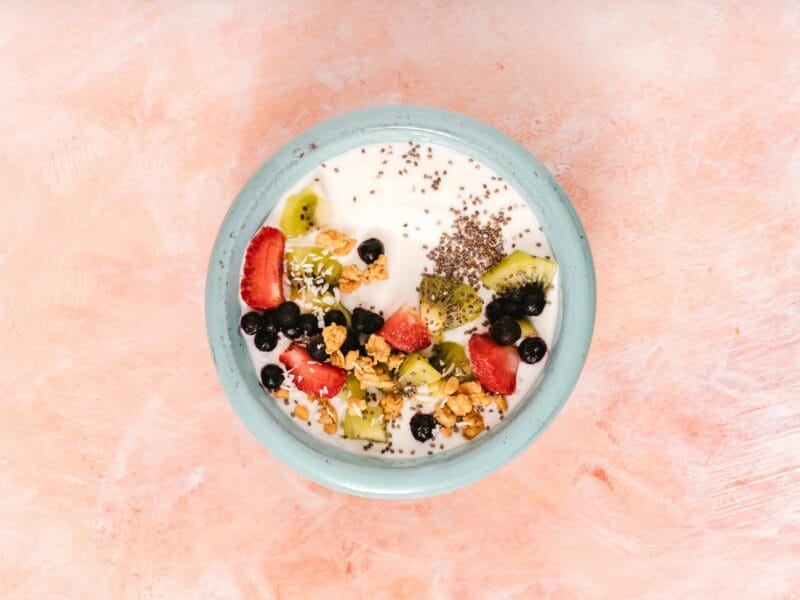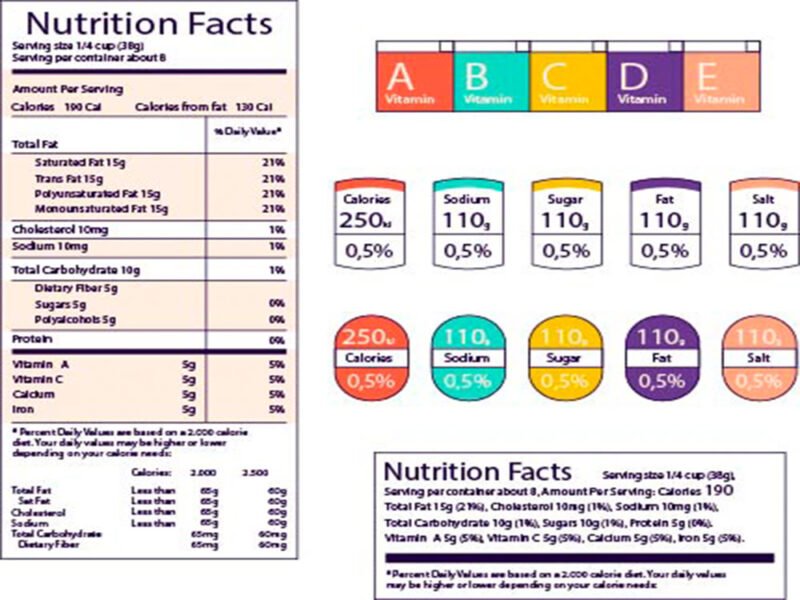Probiotics have gained immense popularity due to their numerous health benefits, particularly for women. From improving digestion to supporting vaginal and urinary health, probiotics offer a range of advantages for women at different life stages. Whether you’re dealing with digestive discomfort, hormonal changes, or looking to boost immunity, probiotics can help address common issues women face.
This guide will help you understand the specific benefits of probiotics for women with the latest facts, offering science-backed insights to help you make informed health decisions.
What Are Probiotics For Women and How Do They Work?
Probiotics for women are beneficial live microorganisms that help maintain a healthy balance of bacteria in the body. Found in fermented foods and supplements, they offer specific health benefits. Probiotics support digestive health by reducing bloating and constipation, maintain vaginal health by preventing infections, and promote urinary tract health by inhibiting harmful bacteria. Additionally, they enhance immune function and may improve mental well-being by influencing the gut-brain axis. By incorporating probiotics into their diets, women can address common health concerns and maintain overall wellness throughout various life stages.
1. Improved Digestive Health
Women often experience digestive issues like bloating, constipation, and irritable bowel syndrome (IBS), which can be uncomfortable and disruptive. Probiotics can be particularly helpful in managing these symptoms by promoting a healthy balance of gut bacteria. By restoring this balance, probiotics can improve digestion, enhance nutrient absorption, and weight management and reduce inflammation, leading to greater comfort and overall digestive health.
How Probiotics Help with Digestion
-
Alleviating Bloating and Constipation: Probiotic strains like Bifidobacterium and Lactobacillus help regulate bowel movements and reduce bloating. Studies have shown that these strains can relieve constipation and improve overall gut function in women.
-
Easing IBS Symptoms: Research has found that probiotics can help women with IBS experience fewer symptoms like abdominal pain and irregular bowel movements. They support digestive regularity by reducing inflammation in the gut.
Current Data on Digestive Health
A meta-analysis published in the American Journal of Clinical Nutrition in 2021 concluded that probiotics reduce the severity and frequency of digestive complaints in women, particularly those related to IBS and functional constipation.
2. Supporting Vaginal Health
A healthy vaginal microbiome is essential for preventing common infections such as bacterial vaginosis (BV) and yeast infections. Probiotics, particularly Lactobacillus strains, play a key role in maintaining vaginal health by helping to balance the natural flora and creating an environment that inhibits the growth of harmful bacteria. Regular consumption of these beneficial bacteria can reduce the risk of infections, ensuring that women can enjoy optimal vaginal health and overall well-being.
How Probiotics Promote Vaginal Health
-
Preventing Bacterial Vaginosis (BV): Studies suggest that probiotics can help maintain an acidic vaginal environment, which inhibits the growth of harmful bacteria. This is particularly important for preventing recurrent BV, a condition many women experience.
-
Reducing Yeast Infections: Probiotics can help regulate the balance of yeast and bacteria in the vagina, reducing the likelihood of infections. Women who experience frequent yeast infections may find probiotics helpful in maintaining long-term vaginal health.
Current Data on Vaginal Health
Research from Frontiers in Microbiology in 2021 confirmed that women taking probiotics with Lactobacillus strains had a significantly lower risk of recurrent BV and yeast infections. This makes probiotics a natural option for maintaining vaginal health without relying on frequent antibiotic or antifungal treatments.
3. Urinary Tract Health
Urinary tract infections (UTIs) are a common issue for many women, with nearly 50% experiencing at least one UTI in their lifetime. These infections can cause discomfort and disrupt daily activities, making prevention essential. Probiotics, particularly the Lactobacillus strain, may help prevent the recurrence of UTIs by maintaining a healthy bacterial balance in the urinary tract. By promoting the growth of beneficial bacteria, probiotics can inhibit the growth of harmful pathogens, ultimately reducing the likelihood of developing a UTI and supporting overall urinary health.
How Probiotics Help Prevent UTIs
-
Protecting Against Harmful Bacteria: Probiotics prevent the growth of harmful bacteria, such as Escherichia coli, which is responsible for most UTIs. Regular intake of probiotics, especially Lactobacillus crispatus, has been shown to reduce the frequency of UTIs.
-
Promoting a Healthy Microbiome in the Urinary Tract: Probiotics work by populating the urinary tract with good bacteria that act as a defense against pathogens that cause infections.
-
Current Data on Urinary Health: A 2022 clinical trial in Urology Journal found that women who took probiotics daily experienced a 50% reduction in UTI recurrence compared to those who did not. The study emphasizes the importance of maintaining a balanced microbiome for long-term urinary tract health.
4. Boosting Immune Function
A large part of the immune system is located in the gut, making probiotics crucial for supporting immunity. For women, probiotics can help reduce the risk of infections, such as urinary tract infections and vaginal infections, while also improving overall immune response. By promoting a healthy balance of gut bacteria, probiotics enhance your body’s ability to fight off illnesses and maintain good health.
How Probiotics Boost Immune Function
-
Enhanced Immune Defense: Probiotics help stimulate the production of immune cells, such as antibodies, which are essential for fighting off infections. A healthier gut microbiome means a stronger immune system, which is especially beneficial during times of stress or illness.
-
Reduced Inflammation: Chronic inflammation is linked to several health issues, from autoimmune diseases to cardiovascular conditions. Probiotics can help reduce inflammation by promoting a balanced gut environment.
Current Data on Immunity
A 2021 study in Frontiers in Immunology found that women who consumed probiotics regularly had a more robust immune response, with lower levels of inflammation markers in the blood. Probiotics were also shown to improve the production of antibodies in response to infections.
5. Mental Health Benefits: The Gut-Brain Connection
Emerging research highlights the connection between gut health and mental well-being, known as the gut-brain axis. For women, who are more prone to mood swings and anxiety due to hormonal fluctuations, probiotics may offer mental health benefits by improving gut health.
How Probiotics Support Mental Health
-
Reducing Anxiety and Depression: Studies have shown that probiotics can reduce symptoms of anxiety and depression by influencing neurotransmitter production. Lactobacillus and Bifidobacterium strains are particularly effective in this regard.
-
Supporting Cognitive Function: Some probiotics may improve cognitive function, memory, and focus by reducing inflammation in the brain and supporting overall mental clarity.
Current Data on Mental Health
According to a 2020 study in Nutrients, women who took probiotics reported a 35% reduction in anxiety and a 25% reduction in depressive symptoms after just 8 weeks. This highlights the potential role of probiotics in supporting women’s mental health, particularly during hormonal shifts.
6. Probiotics During Pregnancy and Postpartum
Pregnancy brings significant changes to a woman’s body, including shifts in the gut microbiome. Probiotics can help during this time by supporting both digestive and immune health, which are often compromised during pregnancy.
How Probiotics Benefit Pregnant and Postpartum Women
-
Preventing Digestive Issues: Constipation and bloating are common during pregnancy, but probiotics can help by maintaining a healthy digestive system.
-
Supporting Immune Function for Both Mother and Baby: Probiotics help bolster the immune system of pregnant women, which also benefits the developing baby. After childbirth, probiotics can aid in recovery and support breastfeeding mothers by reducing the risk of mastitis.
-
Current Data on Pregnancy and Postpartum Health
A 2021 study in Nutrients found that probiotics significantly reduced constipation and bloating in pregnant women and supported healthy immune function during and after pregnancy. Probiotics were also associated with lower rates of postpartum infections like mastitis.
Read More about probiotics:
When to Take Probiotics: A Complete Dosage Guide Of Probiotics
Best Probiotics for Weight Loss for Women
Do Probiotics Break A Fast ?
Conclusion: Why Probiotics Are Essential for Women's Health
Probiotics provide numerous benefits for women, improving areas such as digestive health, vaginal health, immunity, and mental well-being. By adding probiotics to your daily routine—whether through probiotic-rich foods like yogurt and kefir or supplements—you can help keep your gut microbiome balanced. This balance is essential for maintaining overall health and supporting various bodily functions. With their diverse positive effects, probiotics are a valuable addition to any woman’s health strategy, especially during significant life stages like menstruation, pregnancy, and menopause, where they can offer extra support.





